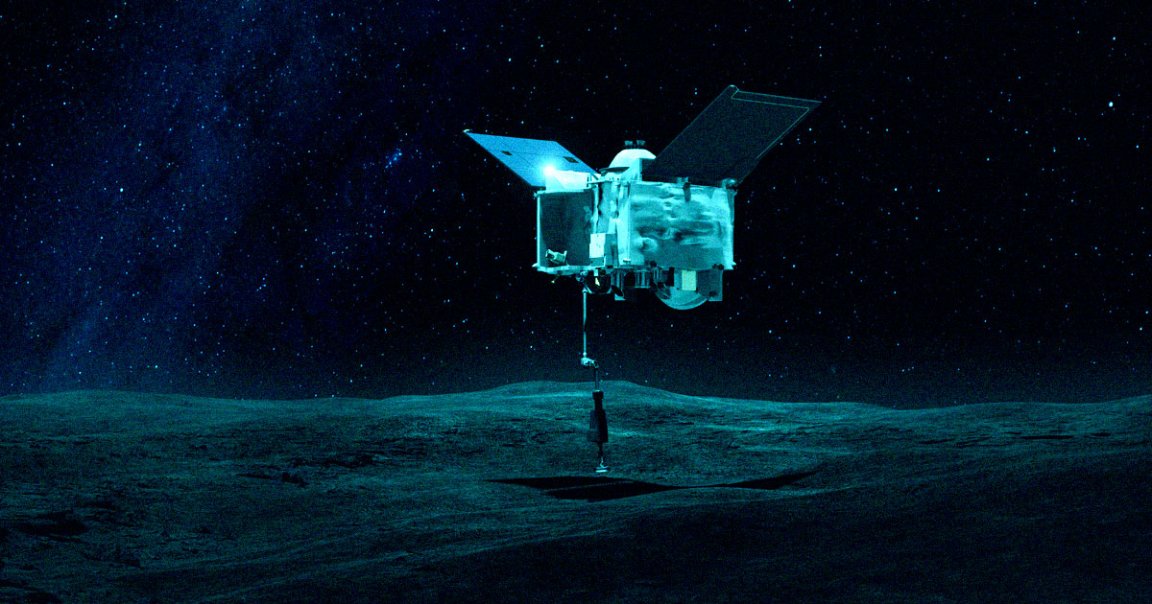
Pay Dirt
After a monumental journey through outer space that took years and countless miles, NASA’s OSIRIS-REx spacecraft is scheduled to release a “mini-fridge size capsule” over the Utah desert this week, according to the space agency.
The capsule contains truly precious cargo, about 8.8 ounces of rock and dust from asteroid Bennu tens of millions of miles away.
If carried off successfully, it could mark the first time NASA has nipped a sample of asteroid and taken it back to Earth in an extraordinary delivery. First-time honors in bringing an asteroid sample back to Earth belong to the Japanese spacecraft Hayabusa, which had taken minute samples of the asteroid Itokawa back in 2010.
Many scientists are eager to study this asteroid sample from Bennu because they believe it contains materials that date back to the earliest days of the solar system, according to OSIRIS-REx deputy project manager Michael Moreau. It could also contain organic molecules that scientists think hitched rides on meteorites that slammed into Earth and helped seed life on our planet.
Touch and Go
OSIRIS-REx first embarked on its mission on September 8, 2016, and arrived two years later at Bennu, an asteroid that has a diameter of around 1,614 feet and orbits the Sun every six Earth years.
The asteroid is interesting because it’s extraordinarily old, with material dating back to at least 4.5 billion years. Bennu is also relatively close to Earth compared to the solar system’s many asteroids, which primarily reside in the asteroid belt between Mars and Jupiter, making it a tantalizing object of study.
When OSIRIS-REx first arrived at Bennu, it orbited the asteroid for two years, and then in 2020, it made a bold maneuver — a “Touch-And-Go” move — that saw the spacecraft land on the asteroid briefly, collect samples, and then used its on-board thrusters to launch itself off of the rock.
In 2021, after a last flyby around the asteroid, OSIRIS-REx finally started journeying back to Earth.
Even after it releases its return capsule over Earth in less than a week, NASA says OSIRIS-REx’s job is not quite complete. When it makes its payload delivery, the spacecraft will not stop to land on our planet but will instead veer its path towards the asteroid Apophis, where it is scheduled to arrive in 2029.
More on OSIRIS-REx: Watch Nasa’s Spacecraft Touch Down On A Tiny Asteroid